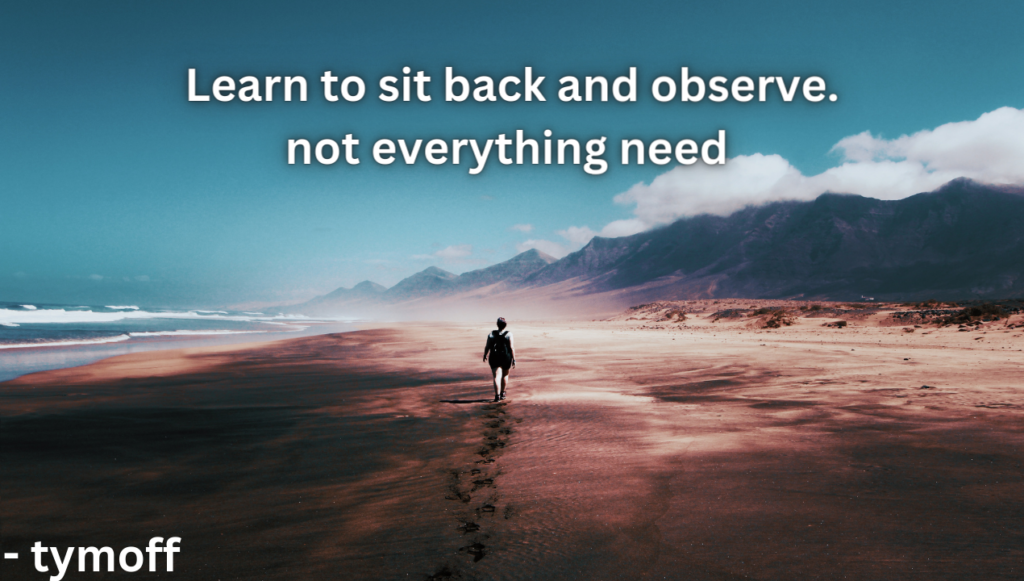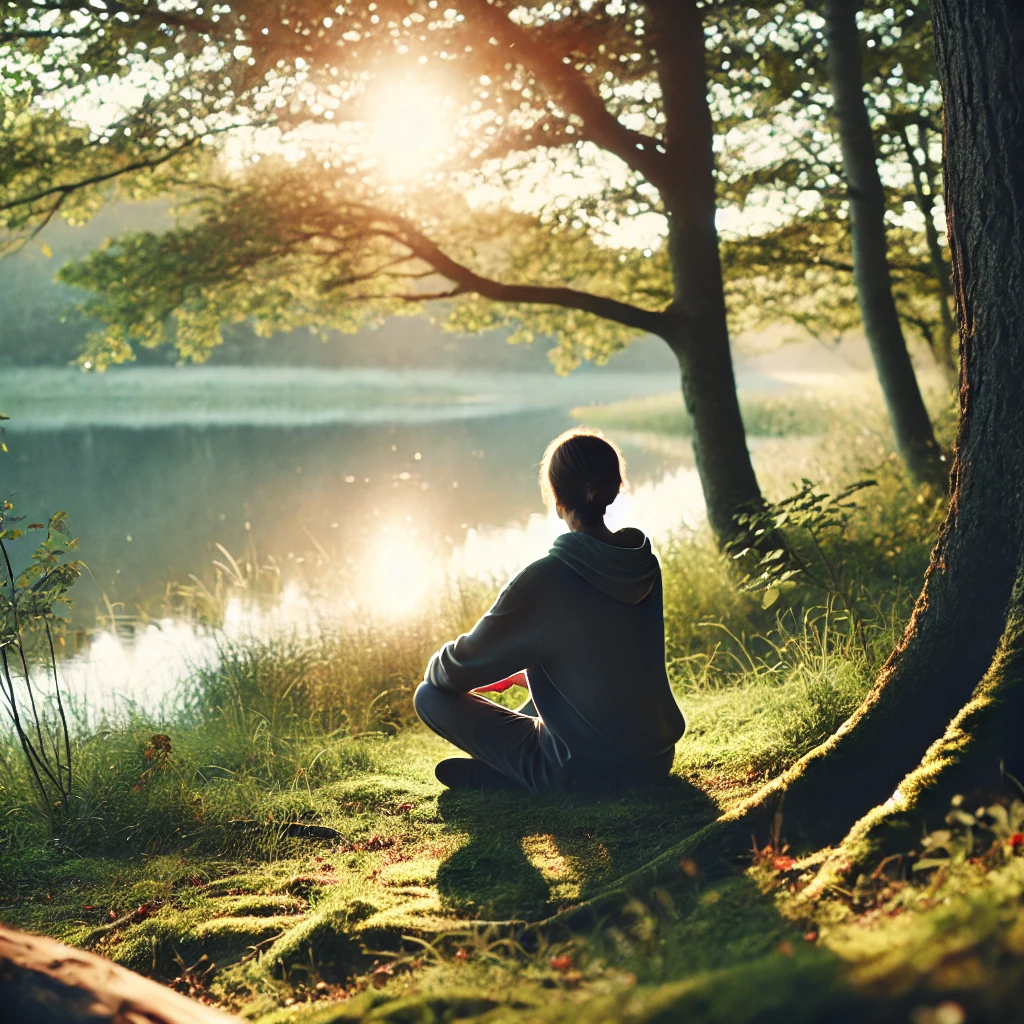Learn to sit back and observe. not everything need – tymoff In today’s fast-paced world, it’s easy to get caught up in the whirlwind of reactions, thoughts, and opinions. However, there’s immense value in taking a step back and simply observing the world around you. Not everything demands your immediate response, and understanding this can bring peace and clarity to your life. In this article, we’ll explore the concept of learning to sit back and observe, as well as the benefits it brings to both your personal and professional life.
Table of Contents
The Power of Observation learn to sit back and observe. not everything need – tymoff

learn to sit back and observe. not everything need – tymoff When you learn to sit back and observe, you open yourself to a world of understanding. Observation is more than just looking; it’s about becoming fully aware of your surroundings, emotions, and thoughts. By observing, you create space between stimulus and reaction, giving you the ability to choose how you respond. This practice can help you gain clarity and improve decision-making in all areas of your life. learn to sit back and observe. not everything need – tymoff
Understanding Tymoff’s Philosophy
Tymoff’s idea of “learning to sit back and observe” is rooted in emotional intelligence. The philosophy encourages patience and mindfulness, showing that not every event or situation warrants your immediate reaction. By adopting this mindset, you can build resilience, stay calm in difficult situations, and respond more thoughtfully when the time is right.
Why Reacting Isn’t Always Necessary
Reacting to every situation can lead to impulsive decisions, increased stress, and emotional fatigue. There’s a certain strength in choosing not to respond immediately. By taking a moment to observe, you can gain a broader perspective, avoid misunderstandings, and conserve your energy for situations that truly require your attention.
The Art of Letting Go
learn to sit back and observe. not everything need – tymoff Letting go is an integral part of learning to sit back and observe. By releasing the need to control or influence every outcome, you allow life to unfold naturally. This doesn’t mean you’re passive or indifferent; rather, it means you trust that some things can resolve themselves without your intervention. Letting go leads to greater peace of mind and emotional freedom. learn to sit back and observe. not everything need – tymoff
How to Practice Sitting Back and Observing

Incorporating observation into your daily routine can transform your life. Start by practicing mindfulness, which involves being fully present in the moment without judgment. Focus on listening more than speaking, and take time to reflect before reacting. By doing so, you’ll find that many issues resolve themselves without your input.
The Benefits of Non-Reaction
Non-reaction doesn’t mean avoiding action; it means choosing your actions wisely. When you sit back and observe, you allow yourself to process information fully before making decisions. This leads to more thoughtful responses, less regret, and a greater sense of control over your emotions.
Observation and Relationships
In relationships, observation can be incredibly powerful. By taking the time to truly understand others before responding, you can foster better communication and reduce conflict. Listening more and reacting less creates space for empathy, patience, and deeper connections.
Observation in Professional Settings
In the workplace, the ability to sit back and observe before acting is a valuable skill. It allows you to assess situations more effectively, make better decisions, and manage stress. Leaders who practice observation are often more respected, as they are seen as thoughtful and deliberate in their actions.
Cultivating Patience Through Observation
learn to sit back and observe. not everything need – tymoff Observation naturally cultivates patience. By sitting back and allowing events to unfold without immediate interference, you develop the ability to wait for the right moment to act. learn to sit back and observe. not everything need – tymoff This patience can lead to better outcomes and a more balanced approach to life.
The Science Behind Observation
Research shows that those who practice mindfulness and observation have lower stress levels and greater emotional stability. By pausing before reacting, you give your brain time to process information, leading to more rational decisions and a clearer understanding of the situation. learn to sit back and observe. not everything need – tymoff
Silence as a Tool for Observation
Silence is a powerful complement to observation. When you choose not to react, you create space for reflection and deeper insight. Silence allows you to listen fully, understand the bigger picture, and respond thoughtfully when the time comes.
Common Misconceptions About Non-Reaction
Some people may think that not reacting is a sign of weakness or passivity. In reality, it takes great emotional strength to sit back and observe. It shows that you are in control of your emotions and that you value thoughtful responses over impulsive reactions.
Observation and Self-Growth
Observing your own thoughts, behaviors, and patterns is key to personal growth. By regularly reflecting on your actions, you can identify areas for improvement and make conscious decisions that align with your values and goals.
Practical Tips for Developing Observation Skills

To develop your observation skills, start by setting aside time for daily reflection. Avoid distractions and focus on being present. Practice active listening and be mindful of your reactions. Over time, observation will become second nature, helping you navigate life with greater ease and understanding.
Also: Outfits:6b8jvk2c7_e= Adam Sandler: Comfort Meets Style







